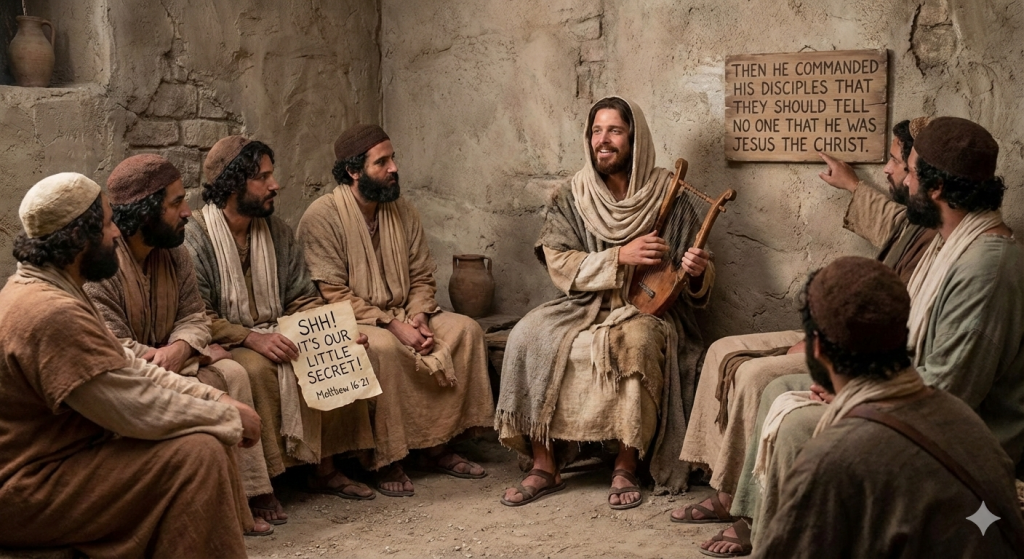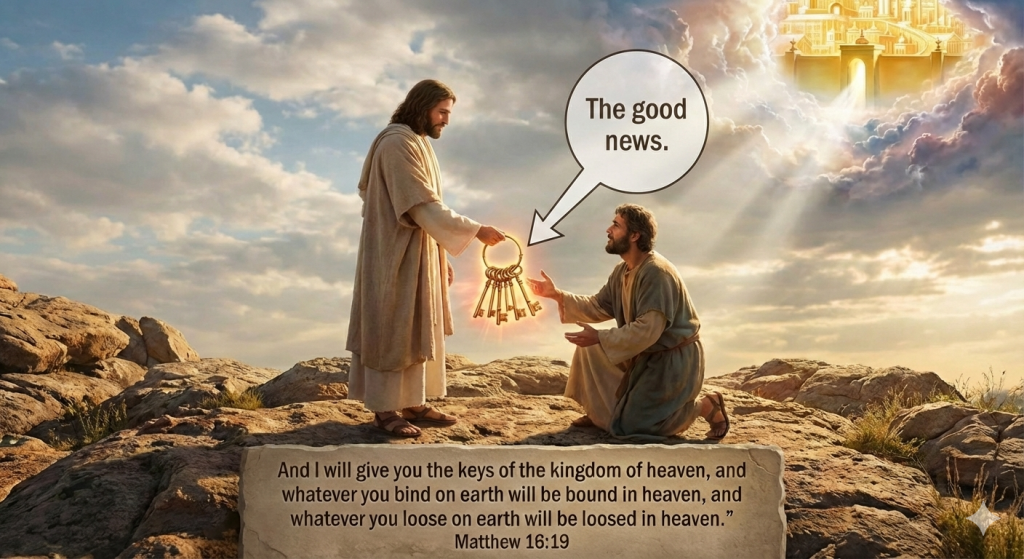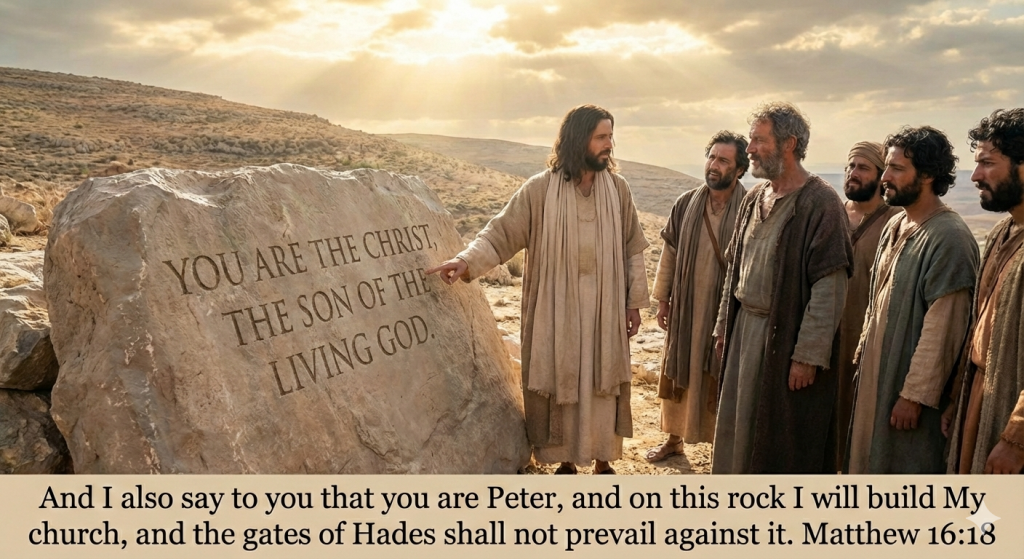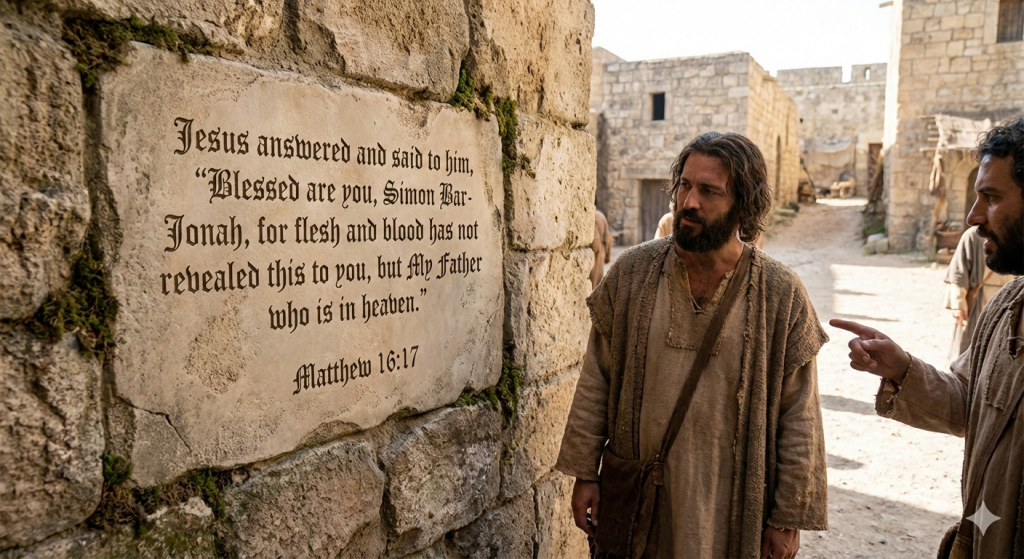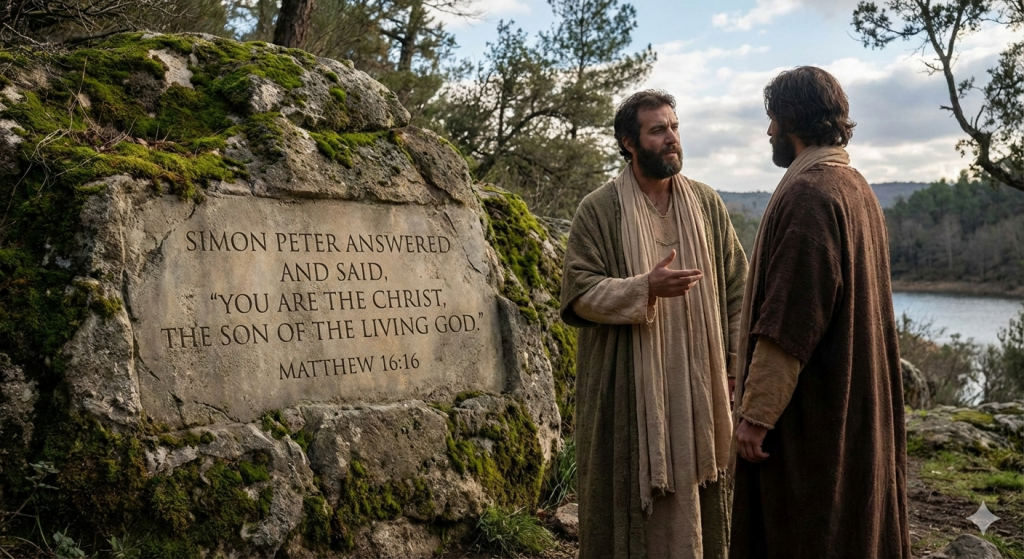Friday, 6 February 2026
Then He commanded His disciples that they should tell no one that He was Jesus the Christ. Matthew 16:20
Note: You can listen to today’s commentary courtesy of our friends at the “Bible in Ten” podcast. (Click Here to listen).
You can also read this commentary, scrolling with music, courtesy of our friends at “Discern the Bible” on YouTube. (Click Here to listen), or at Rumble (Click Here to listen).
“Then He enjoined His disciples that they should say to none that He, He is Jesus the Christ” (CG).
In the previous verse, Jesus explained to Peter what it meant to possess the keys of the kingdom of the heavens. Next, Matthew records, “Then He enjoined His disciples.”
A new word is seen, diastelló, to enjoin. It is from dia, through, and stelló, to set fast. Thus, the sense is to thoroughly set firmly. To enjoin, in a legal sense, means to prohibit someone from performing by issuing an injunction. This is just what Jesus is doing here. He is thoroughly ensuring “that they should say to none that He, He is Jesus the Christ.”
The emphasis is on Jesus. People have been hailed as the Messiah in Israel many times. This was probably true at Jesus’ time as well. However, Jesus did not want this to be revealed at the time because it would distract from His ability to complete His ministry. If people wanted to suppose He was the Christ based on what He did, that was their choice.
Likewise, to proclaim Him the Christ without a full revelation of what that meant could be injurious to the very meaning of the word. Christ Jesus had to suffer and die as God’s Messiah. To proclaim Him the Messiah before that occurred would lead to a great deal of confusion among the people when He was crucified.
However, afterward, that could become a part of the full confession of what it meant to be the Messiah. And this is exactly what Peter explained to the people in Acts 2 –
“Men and brethren, let me speak freely to you of the patriarch David, that he is both dead and buried, and his tomb is with us to this day. 30 Therefore, being a prophet, and knowing that God had sworn with an oath to him that of the fruit of his body, according to the flesh, He would raise up the Christ to sit on his throne, 31 he, foreseeing this, spoke concerning the resurrection of the Christ, that His soul was not left in Hades, nor did His flesh see corruption. 32 This Jesus God has raised up, of which we are all witnesses. 33 Therefore being exalted to the right hand of God, and having received from the Father the promise of the Holy Spirit, He poured out this which you now see and hear.
34 For David did not ascend into the heavens, but he says himself:
‘The Lord said to my Lord,
“Sit at My right hand,
35 Till I make Your enemies Your footstool.”’
36 ‘Therefore let all the house of Israel know assuredly that God has made this Jesus, whom you crucified, both Lord and Christ.’” Acts 2:29-36
Proclaiming Jesus as the Messiah before the work of the Messiah was complete would be putting the cart before the horse. However, noting after the resurrection that Scripture actually taught that the Messiah would suffer, die, and yet not see corruption due to the resurrection, would allow the true meaning of what it meant to be the Christ to be fully expressed.
Life application: Quite often, we withhold information from others to avoid having setbacks in the process of completing whatever necessary things must be done. For someone to go ahead and pronounce a matter before the proper time will only cause problems.
Something as simple as someone having access to a company speech before it is given, maybe for editing or uploading to a website, and then revealing its contents before it is released, may cause harm. Maybe the person has last-minute changes that need to be worked into it. It may be that he is going to appeal to a certain person or group and wants his words to be carefully spoken when the speech is given.
To reveal the content in advance may harm such things. It is the CEO’s sermon to give. Revealing it without his permission is thus inappropriate. This is true with company board meetings, military engagements, etc.
If the president is going to attack another nation, say a nation called Aleuzenev, and the Congress were to find out about it in advance, it is certain that those in the opposing party, like the Marxist Representative COA from New York, would leak the details in an attempt to harm the military operation.
Such examples show us that it is important to keep what we know about unrevealed things to ourselves. When the time is appropriate, the information will get out as it should. There is nothing to be gained from being the first to reveal what should not be revealed.
God has a plan and a set timeline for His redemptive process to be complete. If He were to give the timing of the rapture in advance, for example, instead of getting out and telling others about Jesus, people would sit around doing nothing until that day. It would be harmful and unproductive. Wait, maybe that is not the best example. People do sit around all day doing nothing but speculating about the rapture. See! We need to focus on our duties, not on what others are doing. In the case of the rapture, let God accomplish His plan as He sees fit.
Lord God, help us not to be busybodies by sharing things without restraint. Rather, may we be the type of people who can be trusted with quietly and diligently doing our part as we await Your plan to unfold. The rapture will happen exactly when it should. Until that day, we have work to do. May we do it to Your glory. Amen.

